“The Middle East is an Attractive Market for Us”
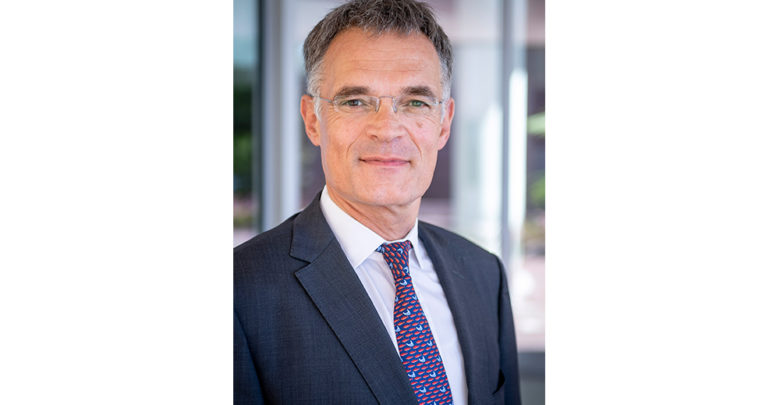
Exclusive interview with Claus Bolza-Schünemann, CEO, Koenig and Bauer
As one of the biggest player in global printing industry Koenig and Bauer has been choosing its path wisely. The company started diversifying into different sectors of printing industry since many years ago and the company is now offering a wide range of printing equipment for offset, digital, security, flexible packaging as well as metal printing. Koenig and Bauer’s focus on packaging could be a winning formula to survive the ongoing Coronavirus crisis. In order to find out more about company’s plans for the future and its view on current pandemic we talked with Claus Bolza-Schünemann, CEO of Koenig and Bauer.
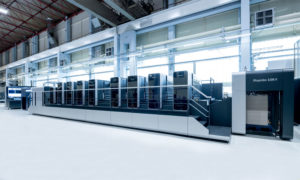
Schünemann has served the company for 28 years, which included nine years as CEO and President. He is an engineer and full of passion about graphic arts industry. Here is the full interview which was done through remote video conferencing.
Uncertain times Mr. Schünemann, don’t you think so?
Yes, but after all any kind of disease or virus is a huge challenge and we have to live and cope with it. However, my belief is some of the measures taken were completely overdone and others are fairly okay. Having said that I believe the Coronavirus crisis will change international business and also our lifestyle dramatically, unlike any other disease or virus that hit us during the last 50 or 100 years. It’s not the Spanish flu of course, but it’s all over the world. And as you already said the uncertainties are quite large.
Unlike a number of big manufacturers who believe the era of mega exhibitions is over you have decided to participate in drupa, do you believe exhibitions such as drupa are still relevant?
I personally believe so. There is no question that there are fewer exhibitions around the world than the past. However, we do actually believe that showing technologies and solutions for the graphic industry in a general Exhibition has an extremely broad view. We do have in-house exhibitions, but we only show what kind of technology Koenig and Bauer has to offer to the market. In an exhibition you have the opportunity to see all or most of companies who are active in the printing world under one roof and this is a great advantage. And I think this is also a charming part of the exhibitions such as drupa for the customers who are visiting the show. They have the possibility to see not only printing presses from several suppliers but also all the solutions around it. Therefore, I think very large exhibitions that are being held once in a while such as China Print or drupa are still attractive. However regional exhibitions with few exhibitors are not viable anymore. Many have died and don’t exist anymore. They just became too small and therefore I think that the large ones are still very popular.
For Koenig and Bauer particularly participating at drupa is to show a new technology or face to face meeting is more important? Many companies now are using virtual events and webinars to present their new technology.
You know, at the very end people do business and we are in the investing industry. We don’t manufacture cars or refrigerators, which can be easily sold via Internet. It’s long-term partnership. Customers are with us and we are with customers. Maybe I’m old-fashioned, after all I am 64. I’m allowed to be that way. But at the very end, I think the personal contact, the trustworthy long term relation is essentially very important, especially for the kind of business we are in.
Recently you introduced Rapida 106 X, as well as Rapida 76 as brand new presses. However, it seems that both are classic Rapidas with all the bells and whistles and options that were already available and a trendy news design, do you believe sheetfed offset still has the ability to surprise us?
It’s certainly not a completely new equipment. It’s a constant continuous development and evolution of the existing ones. There’s no question. The iron is almost the same. The purposes are the same, of course like a new car, you find many components from the prior series. This is normal, but you will find several digital features in our new machines as well. You can run the press from your smartphone. From an operational point of view there is new software application, a big new wall screen which is very easy to operate. There are some new and highly automated hardware features as well, such as fully automated plate supply which operates like a commercial newspaper press. So there are many new features but the machine at heart is certainly a Rapida 106.
So you don’t think we can label a new sheetfed offset press as revolutionary or disruptive technology anymore?
No, it’s not a disruptive development. It’s a sheefed industrial press with proven technology for 24/7 use, highly automated, full of function. But at the very end, it must be a workhorse for our customers.
You mentioned due to Covid 19 Koenig and Bauer will be focusing more on remote services and Visual PressSupport, do you believe customers also embrace this new strategy or they have no other choice anyway?
I think the good part of Covid -19, if there is any, is that we learned lots of things can be done virtually, like our interview right now. In the old days You would have to travel six hours by plane to meet me in person. This now works extremely well and certainly will change the way we communicate with customers. Maybe we don’t have to send three experts in the future to customer premises, one would be enough and the rest can be done online. This is a dramatic change. For example, last week we fully commissioned a machine in Asia only via internet. We did the commission work, software loading, start of the machine. 95% of the work we did virtually through Internet and video camera. We had only one, I would not even say expert, on site and it really worked well. Now customers are more and more willing to accept that we help and offer them service work remotely. The same printers before would not allow us to have internet access into their machines. Everybody was afraid the data would be compromised. This attitude has dramatically changed during last six months.
Due to Coronavirus crises sales are naturally down and all companies are struggling what measures you have taken to mitigate the crisis?
We took a number of measures. From first of April on we do short hour work. We have about 1000 people who are not working full time and it is mostly paid or subsidized by government to avoid that all the companies release employees by the thousands of by the millions. Luckily most of the European countries do the same thing. Countries such as Switzerland, Austria and Check Republic to name a few. However, the situation is completely different in the US. They immediately fired their employees and therefore their unemployment rate is sky high. So what we did is certainly of value. Having said that, this cannot go on forever. And we are not the only one who are facing these challenges. It is the same for Airbus or other manufacturers as well. In midterm the revenue of all companies will go down and I think everybody has to find its way on how to reorganize, to restructure, reduce workforce or whatsoever. If the economic hit from Covid continues the outcome would be what I just mentioned. Even if Covid should disappear in six months, we will not be back to normal within the next 12 months. This will not happen.
Prior to the Pandemic Middle East has been a growing market for Koenig and Bauer, is Middle East market still attractive for you?
Yes. Definitely. No question about that. We are fully active wherever we can. Sometimes it is very difficult to physically meet the customers. We do many things virtually. We launched Koenig and Bauer live webinar back in June. It was extremely successful. And many visitors from the near East, the Far East and Middle East signed up to watch the event. So we have no drawbacks from the Middle East. Not at all. It’s a good market for us and we certainly keep penetrating it.
Don’t you think pandemic proved that big manufacturers need to have a strong local presence and more investment to train local service men to handle maintenance and repair job locally plus a well stock of spare parts rather than relying on German staff? Don’t you think this is a better option right now?
This is not an option, this is reality. we do have hubs around the world where we have mechanical and software experts. These hubs are located in areas where we have a lot of customers. For example, in Southeast Asia, in China, in the USA, and in Mexico. These hubs help us to offer services locally and to avoid having to fly experts always from Germany which is costly and also time consuming. This was a big help during Covid in US. Thanks to 160 employees in US we could do service work in that country. Otherwise we would have had no chance to interfere and offer our services in the US during pandemic. And we will stick to this policy. I think it’s also important for our customers. We have big printers around the world who are asking for local support, people available for very quick service and therefore we have implemented this policy many years ago. Despite all the digital possibilities we continue offer service through our local partners. We now have more than 200 people in China. They’re doing mainly commissioning and service work, something we cannot do from Germany.
Have you had lots of order cancellation due to Covid?
I’m aware of only one single order. We have certainly postponed deliveries because we were not able to carry out the delivery or send experts for example from Germany to Denmark three months ago. This just didn’t work. We stopped major installation in the US, Mexico, Spain, Egypt and Indonesia. But we’re slowly going back to normal. So it was mainly a delay and as I said, except for one machine there was no other cancellations.
Do you consider Koenig and Bauer financially healthy?
Yes. We have no financial issues or shortages at the moment. You know, we always treated our shareholder fairly bad. We always tell them get over profits in the company.
But you asked for a loan from the government?
Yes, we did ask for a loan. It’s not finalized yet. It is mainly for security reasons since we do not know how the world will develop, will we be back to normal in the next 6,12, 0r 18 months, will Covid stay with us for another three years? Nobody knows the answers to these questions. That’s why we applied for loan.
Do you think Covid crisis somehow is forcing printers to go fully automated and implement end to end workflows, something that they were reluctant to do before pandemic?
Definitely yes. I think in the past printers did not have the necessity to opt for full automation. Today is different. Printers are facing lot of pressure commercially. So I think they are obliged to operate as lean as possible using efficient workflows in their printing environment. Also unlike the old days for printers is now easier to accept certain standards in our industry. In the past everybody was looking for his own homemade solutions and therefore standardized workflows were not available or unaffordable and I think this mindset is changing right now.
When we look at sheetfed offset printing market we see commercial printing is declining but package printing is even stronger than before, does this trend mean that your presses also are targeted for package printers rather than commercial printers?
Definitely. As far as sheetfed is concerned our core business is packaging not commercial printing. Two thirds of our presses are being used for package printing. With the increase in population packaging is also growing. The world needs more food and more packaging due to increased health standards as well as higher demand for online shopping. Commercial printing is declining while packaging is on the rise. That is why we are focusing so much on packaging.
What about digital printing? You are also offering digital presses. Do you think the growth rate of your digital presses will be higher than your offset machines in future?
Well, the crystal ball would be nice here. But seriously speaking, no. We are investing since 10 years in digital printing technology. we started with the Rotajet in 2011. We showed the first prototype at drupa. We had many improvements. The print quality today is absolutely outstanding, phenomenal and however it is still fairly expensive process. Total cost of ownership is higher than a conventional offset. Digital printing today and even in one, two or three years down the road will still remain costlier than conventional offset printing.
If the digital print service provider is not able to ask or to receive the extra cost from his customer, I think it is very difficult for digital to expand its markets. I am not saying to survive. There are always applications which can be done beautifully with digital printing. But for mass market, for the food industry, for your cornflakes boxes I really don’t see the benefits of digital printing. Personally I would not pay a single cent more for my cornflakes in the morning if my name is printed on the box. As long as this doesn’t happen digital will not substitute the really competitive offset printing. It’s beautiful if you order a photo book for your personal photos. In this particular case you don’t care if it costs 10, 15 or 20 dollars because it’s for you. It’s fully personalized. Digital is ideal for very small copy counts or for individualized advertising when your customer is willing to pay for the variability you offer and I think this is why both worlds really make sense.
You have diversified into several branches of printing industry. Your product mix now includes equipment for flexible packaging, metal printing and so on and so forth, don’t you find it difficult to be involved in all these different printing technologies and conduct research and development?
Well. You know I’m an engineer and I think it’s joyfully to deal with all these different baskets and you know at the very end, and I said this many times, the core concept of what we do is to apply the ink on a substrate. It doesn’t matter if it is a banknote or a beer can or flexible packaging or folding carton or a corrugated box. They are not identical but many process are extremely similar and therefore if we build paper web transport system or a transport system for flexible packaging, there are not too many differences. In the processes, yes, there are many, but from the engineering, the machine building, the software, and the drive technology aspects they are very similar. Therefore, I think it’s very good to have all these applications in the printing industry. Because if one segment doesn’t perform well in the market another one can replace it. So I think we have a good product mix.
Do you think after the Coronavirus crisis is resolved one way or another, our industry will be able to rebound quickly?
No. It won’t be a fast recovery. No. I guess it will take many years for our whole industry to come back to pre Covid level.

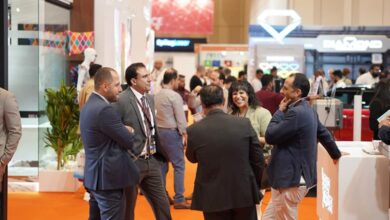

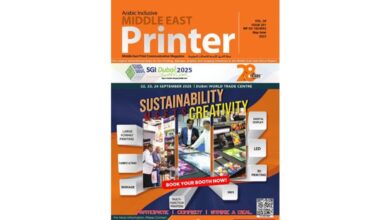
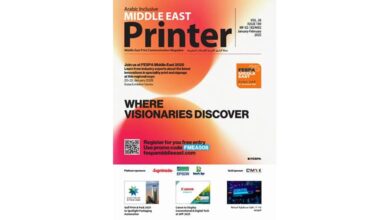
194 Comments